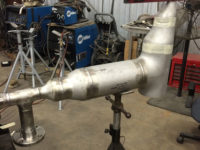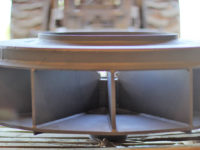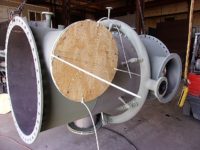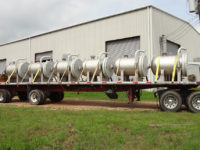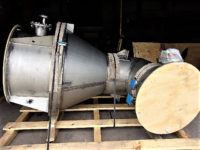Corrosion-resistant alloys are a distinct category of metals and specialty alloys including Austenitic Stainless Steel, Duplex Stainless Steels, High Nickel Alloys, Hastelloy, Titanium, Zirconium Titanium, and Zirconium.
Process equipment that is properly fabricated from corrosion-resistant alloys can handle extremely corrosive applications. Reducing or oxidizing environments, with or without chlorides, and temperatures up to 1200ºF, are all possible with these remarkable materials of construction. In addition to high resistance to uniform corrosion attack, corrosion resistant alloys can be very resistant to pitting, crevice and stress corrosion.
When compared with lower cost and shorter life materials like graphite or glass, the long-term cost advantages such as additional years of service and reduced cost of maintenance make process equipment made with reactive metals the more economical choice.
Applications of Austenitic Stainless Steel
304L / 316L are common grades of stainless steel used in wide variety of applications where corrosion resistance is needed.
Applications of Applications of Duplex Stainless Steel
A mixed microstructure of austenite and ferrite with properties of both, Duplex Stainless Steels have considerably higher strengths than austenitic Stainless Steels and also improved resistance to localized corrosion.
Applications of Hastelloy
Hastelloy is a family of High Nickel Alloys that has been proven around the world in a wide range of industries and applications with corrosion-resistant alloys. Hastelloy is registered trademark of Haynes International, Inc.
Applications of Titanium
Considered the workhorse of the reactive metals, more pounds of Titanium are used for corrosion resistance than all the other reactive metals combined. It is readily available with reasonable pricing.
Applications of Zirconium
Zirconium is commonly used for highly reducing environments. When considering the use of other corrosion-resistant alloys.

